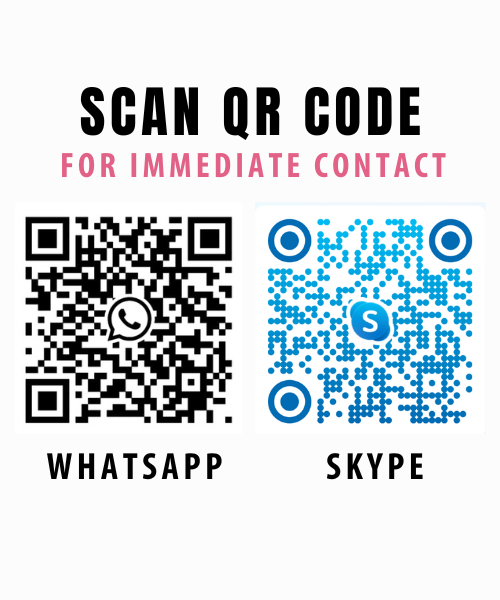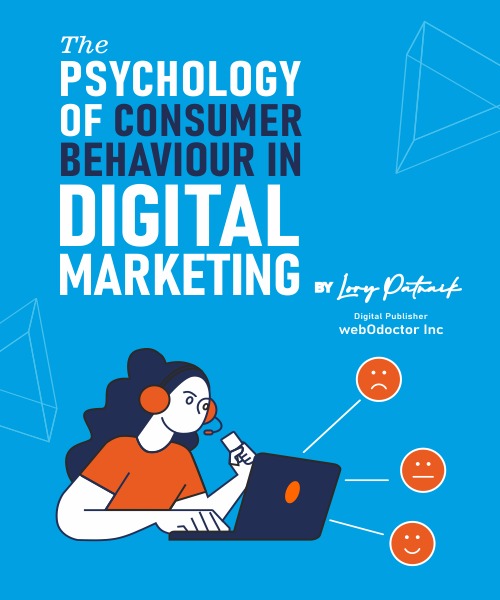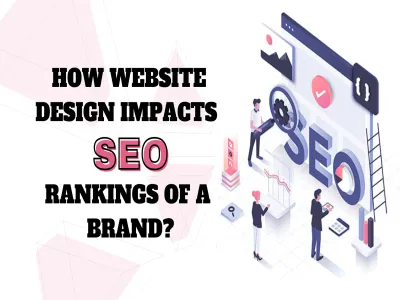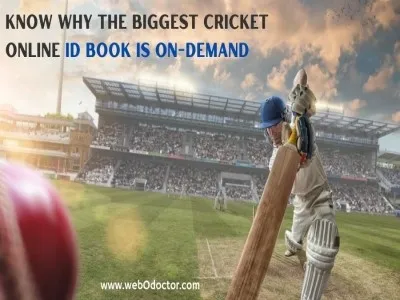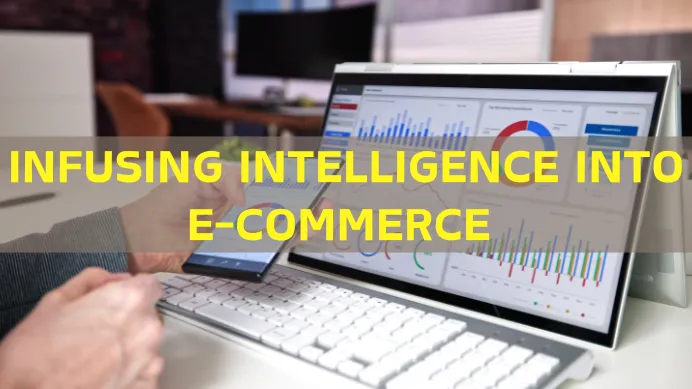
Webodoctor Infusing Intelligence Into E-commerce
Webodotor is an operative IT Solutions company focusing on E-Commerce and elevating clients on the global front. We are the best website development and app development company in India to provide data-driven solutions for our customers in E-commerce driving results in a more automated technique, which will be a treasure in the long run.
How we make the transition a seamless experience for the visitors to your site?
Webodoctor stands as the best e-commerce development service company in India that has leveraged industrial practices with a deeper insight in the horizon of E-Commerce setting parameters of User Behaviour, Session Analysis, Aggregate Analysis, Evaluation of Products and Suppliers performance, Buying Spending capacity, Business Buying Behaviour, Vendor Inventory Control, On-time shipping and end-to-end automation of E-Commerce followed by compressed marketing cycle times to get a well-rounded perspective diving into the changing technology.
Each method of analysis has helped our clients understand the nuances related to user trends and behaviour and get additional feedback which helped WeboDoctor figure out how to serve our customers best.
The objective of WeboDoctor is to evaluate, propose, and improve the use of recent approaches, and architectures - which we have explored and applied in the fields of e-commerce and e-business.
The innovative techniques used in WebOdoctor which has also established itself as the top digital marketing company in India is certain to create an open platform for the E-Commerce clients for staunch collaboration with each other to cater benefits in respective fields along with an effective resource utilization. Such algorithm in accounts of WebODoctor is going to be a transition point for us effectively working for the e-Commerce domain.
WeboDoctor has also provided its clients the full range of services along the E-commerce value chain from online marketing to web development with functional expertise of its own set of methodologies.
There are dozens of metrics to track the performance of your E-Commerce store. Sometimes you fail to keep track of the numbers and how to figure in the picture of your business success. Growing your store, the focus is needed in two areas:
- The right KPI and measuring/ tracking the relative metrics.
- Have a proper analytic system to measure all the metrics.
You need vital e-commerce metrics in each stage of the sales funnel of your business and customer lifecycle.
Our setup accelerates strong growth with a set of algorithms to crawl in web targeting customers and taking E-Commerce around the globe of digital to a different level.
When developing an eCommerce website or app, any brand needs to focus on several key metrics to infuse intelligence and enhance the overall customer experience. These metrics can be categorized into various aspects of the eCommerce platform, such as user engagement, sales performance, customer satisfaction, and operational efficiency. Here are some key metrics to consider:
1. User Engagement Metrics
- Bounce Rate: Measures the percentage of visitors who leave the site after viewing only one page. A lower bounce rate indicates better engagement.
- Session Duration: Tracks the average time users spend on the site or app. Longer session durations suggest higher engagement.
- Pages per Session: Indicates the average number of pages viewed per session. More pages per session can imply better user interest and navigation.
- Click-Through Rate: The ratio of users who click on specific links or calls to action (CTAs). Higher CTRs can indicate effective CTAs and content.
2. Sales Performance Metrics
- Conversion Rate: The percentage of visitors who complete a purchase. A higher conversion rate signifies effective sales and user experience strategies.
- Average Order Value: The average amount spent per order. Increasing AOV can boost overall revenue.
- Cart Abandonment Rate: The percentage of users who add items to their cart but do not complete the purchase. Reducing this rate can lead to higher sales.
- Customer Acquisition Cost (CAC): The cost associated with acquiring a new customer. Lower CAC indicates more cost-effective marketing efforts.
3. Customer Satisfaction Metrics
- Net Promoter Score (NPS): Measures customer loyalty and satisfaction by asking how likely they are to recommend the platform to others.
- Customer Satisfaction Score (CSAT): Gauges overall customer satisfaction through surveys and feedback.
- Customer Lifetime Value (CLTV): The total revenue a business can expect from a single customer over the course of their relationship. Higher CLTV suggests strong customer loyalty.
- Return Rate: The percentage of products returned by customers. Lower return rates indicate better product quality and customer satisfaction.
4. Operational Efficiency Metrics
- Website/App Load Time: The time it takes for the platform to load. Faster load times improve user experience and can positively impact other metrics like bounce rate and conversion rate.
- Uptime and Downtime: The amount of time the platform is operational versus the time it is down. Higher uptime ensures better reliability and user trust.
- Order Fulfillment Time: The time taken to process and deliver orders. Faster fulfillment times can enhance customer satisfaction and repeat purchases.
- Inventory Turnover Rate: Measures how quickly inventory is sold and replaced. Higher turnover rates can indicate efficient inventory management.
5. Personalization and Recommendation Metrics
- Personalization Effectiveness: Tracks the impact of personalized content and product recommendations on user behavior and sales.
- Recommendation Click-Through Rate: The percentage of users who click on recommended products. Higher rates suggest effective recommendation algorithms.
- Revenue from Recommendations: The proportion of sales generated through product recommendations. This metric helps assess the financial impact of personalized recommendations.
6. Customer Support and Service Metrics
- First Response Time: The average time taken to respond to customer inquiries. Faster response times improve customer satisfaction.
- Issue Resolution Time: The average time taken to resolve customer issues. Quick resolutions contribute to better customer experiences.
- Customer Support Satisfaction: Measures how satisfied customers are with the support they receive. Higher satisfaction scores indicate effective customer service.
By focusing on these key metrics, webOdoctor the best website design company in India infuses intelligence into an eCommerce platform, optimizing it for better performance, enhanced user experience, and increased customer satisfaction and loyalty.
I shall catch you guys very soon with a few key metrics that will help you set up your targets and achieve them in a short span of time with your e-commerce business and grow your brand digitally.


